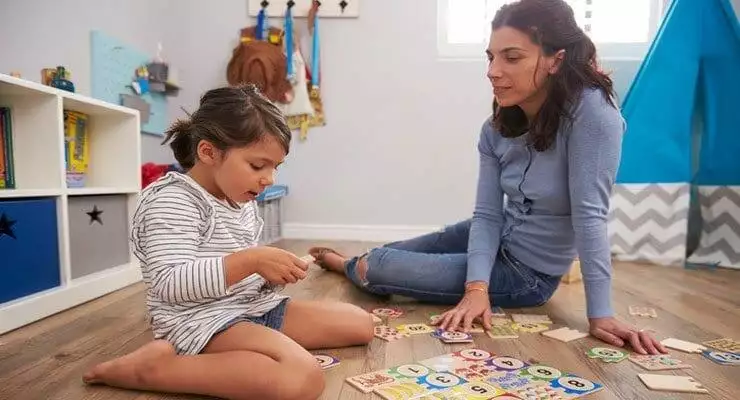Summer has arrived!!! While the majority of kids are happy to be free from the structure of school and are enjoying their free-time playing in the sunshine, our kids with autism are unsure of this freedom- leaving them to feel a bit anxious. Children with autism love structure and when their world as they know it comes to an end, they will often struggle making the transition from school to the freedom of summer. Summer can often be a scary time for these kiddos and as a parent we want our children to be excited about summer and not scared of it. As a therapist, I have spent many summers teaching parents ways in which they can create happy memories with their child on the spectrum. During this time, I have created 5 useful summertime tips that I am sharing with you so you can create fun and positive memories with your child.
Tip 1: Provide a daily structure for your child: Whether you are a structured parent or not, tough… your child is and if you want to create positive memories the best way to start would be to provide daily structure for your child. You do not have to be so detailed by scheduling out every hour. It can be as simple as getting a notebook and every evening write down the list of activities you plan to do for the next day (i.e. breakfast, playtime, lunch, store, dinner, shower, books). The important thing to remember is to verbally go over this schedule with your child at bedtime in order to prepare them for what they can expect for the day AND in the morning. Even if you think your child cannot understand, they can and it is important for them to know what to expect.
Tip 2: Prepare your child for transitions: When switching from one activity to another give your child a three-minute warning and pair it with a timer (i.e. you can use the timer on your phone). Say to your child, “In 3 minutes we are going to eat lunch and when the timer goes off that means bye-bye playtime.” When the timer goes off it will provide a cue to your child that he/she is ending one activity and starting a new one. This techniques decrease anxiety not only for your child, but for you as well.
Tip 3: Spend 1:1 time with your child: It is extremely important that everyday you schedule in 15-30 minutes of 1:1 time with your child doing things that he/she enjoys. These activities can include doing puzzles, blowing bubbles, playing with cars, going to the park, playing in the dirt, swimming. The purpose of this time is to engage with your child in positive ways, to promote positive social interactions, increase language, and to increaser appropriate eye-contact in natural settings.
Tip 4: Make technology educational: I know, I know, technology serves as a break from parenting. There is nothing wrong with using iPads, TV, computer, etc. to give yourself a parenting break. However, if you are going to let your child engage in technology make sure it is educational. There are so many educational apps and free programs that you can download that can teach your child language, conversational skills, math skills and even handwriting. It will take some research on your part, but I have seen clients learn their alphabet, math facts, and even conversational skills by being exposed to educational technology. It is worth the research time because it serves as a break for you and stimulates your child’s brain by teaching them important skills.
Tip 5: Language, Language, Language: Summer time is the best time to expose your child to language at all levels. If your child is non-verbal continuously label things in their environment, if your child is making sounds encourage words, if your child is saying words encourage sentences, if your child is talking encourage back and forth communication. The point to remember is to always expect more from your child and that your child is a sponge and is taking in everything whether you think they are or not. Summer time is a time in which you can expose your child to different experiences and with that comes new language.
Summer is an exciting time and the most important take away is not only enjoy the time with your child but to Have Fun!
About Annette Nunez, PhD.:
Dr. Annette Nunez is a highly sought after Autism expert, author and founder and director of Breakthrough Interventions, LLC, a multi-dimensional therapeutic program with specialized one-on-one programs at home and in school for children with autism. She is a licensed psychotherapist and has worked with children with ASD and other related disorders for over 20 years. She received a BA in Psychology, an MS in Marriage and Family Therapy and a Ph.D. in Quantitative Research Methods with a specialization in Child Development. At UCLA, she studied and trained with renowned autism expert, Dr. Ivar Lovaas on Discrete Trial Training (DTT). She also received training from the Institute for Child Development in California on the Floortime Approach and developed a successful behavioral program that combined aspects of DTT and Floortime. Dr. Nunez wrote the The BI Approach, as well as a book titled Friendship Is, a touching children’s book which shows just how children with autism care for others in their own unique ways and takes a unique look at social acceptance and friendship. In order to raise awareness and encourage inclusion towards children with autism, Dr. Nunez started a social media campaign called #iAcceptAutism, which has garnered the attention of individuals, celebrities, sports teams and universities throughout the country. She is currently writing a book about the SCIP Model that will be published by early next year.





